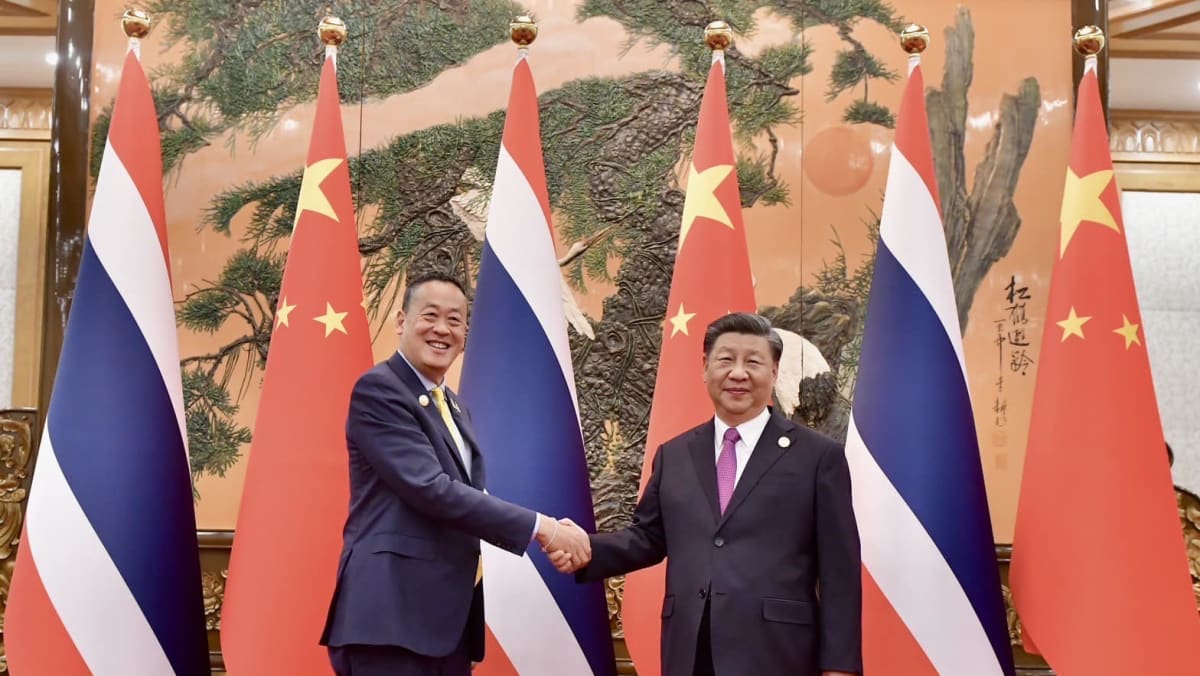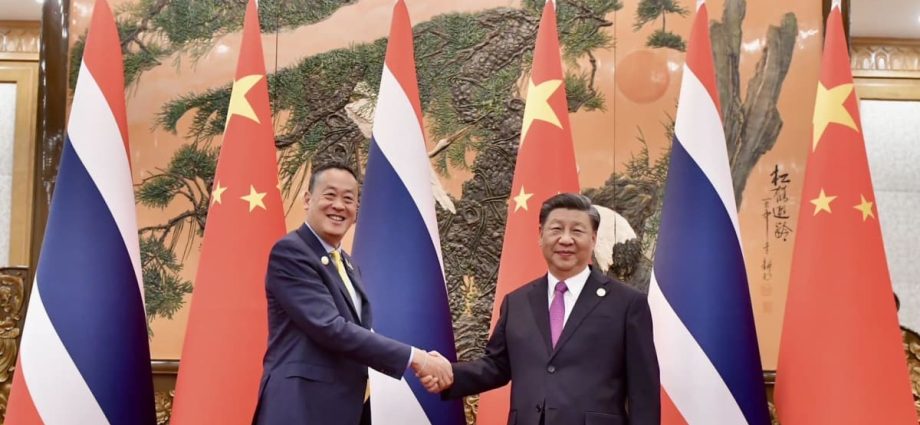
BLOOD IS THICKER THAN WATER?
China and Thailand have a long history of close economic ties, with diplomatic relations dating back to July 1975.
During Mr Srettha’s recent trip to China, Thailand signed a slew of bilateral agreements covering various sectors, including infrastructure, trade and cultural exchanges.
One of the key outcomes of the visit was the focus on green initiatives and high-speed rail projects.
Thailand’s commitment to environmental conservation is evident, and the country seeks Chinese investments to realise these goals. China’s experience in high-speed rail development makes it a valuable partner for Thailand’s ambitious rail projects.
The positive aspects of this close relationship with China are clear. Chinese investments in Thailand’s green initiatives can significantly speed up the country’s transition to a more sustainable and eco-friendly economy, reducing carbon emissions and preserving Thailand’s natural beauty and resources.
Furthermore, support for high-speed rail projects is crucial for enhancing Thailand’s infrastructure, connectivity and transportation network. Efficient rail systems can boost economic development, improve logistics and stimulate both domestic and international trade.
While China and Thailand may resemble brothers in the context of international diplomacy, siblings can sometimes have complex relationships. The strengthened partnership with China is not without its challenges.
Mr Srettha has made it clear that Thailand’s economy needs a significant boost to increase growth, alleviate household debt and improve livelihoods. The economy grew just 1.8 per cent in the second quarter from a year earlier, while household debt has risen to 90.6 per cent of gross domestic product.
China’s economy is also under pressure, with a range of challenges from a property crisis, high youth unemployment and US-China tensions over trade. Its own economic slowdown might hinder its ability to invest as robustly as anticipated. As China is one of Thailand’s major trade and investment partners, its economic health directly affects Thailand. A slowdown in China could have adverse effects on the Thai economy, leading to reduced exports and potentially impacting the livelihoods of the Thai people.
Additionally, Thailand’s closer alignment with China might raise concerns in the United States, a key ally and trading partner. The US is keen on maintaining its influence in the region, and Thailand’s growing ties with China could be viewed with suspicion. Managing this can be particularly challenging against the backdrop of strategic competition in US-China relations.

